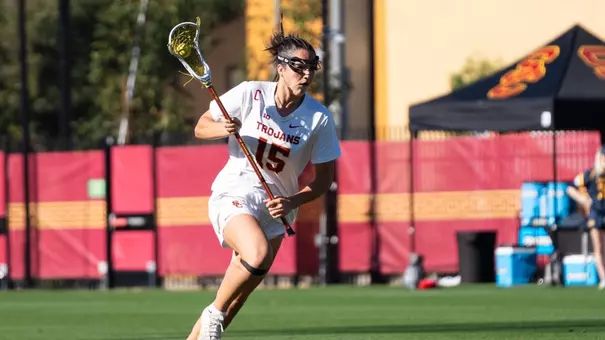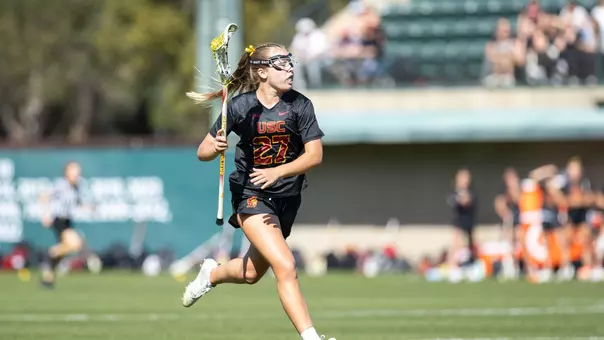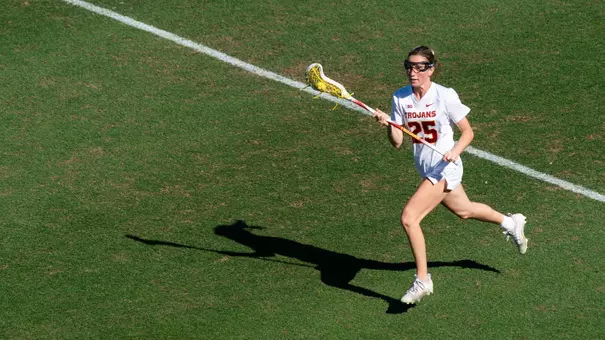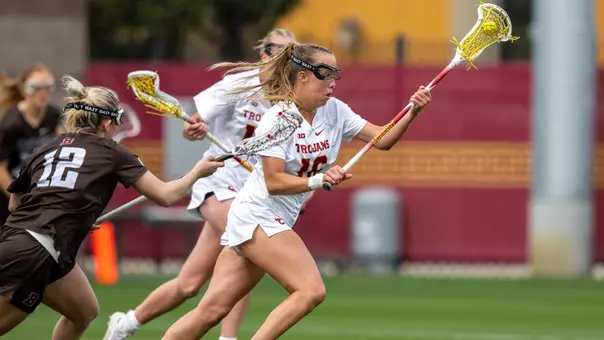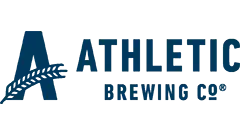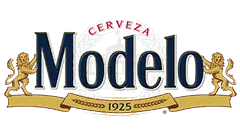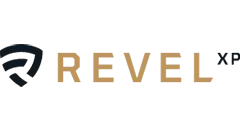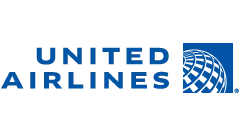University Southern California Trojans
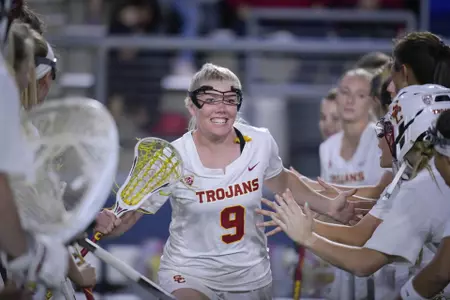
Stevens Center Academic Spotlight: Morgan Kuligowski
March 01, 2018 | Women's Lacrosse, Student-Athlete Academic Services
USC's student-athletes are more than just champions on the field, court, diamond and pool — they're champions in the classroom as well. We get to know these scholarly Trojans a bit better in our academic spotlights.
 Name: Morgan Kuligowski
Name: Morgan Kuligowski
Class: Sophomore
Hometown: Great Falls, Va.
Sport: Women's Lacrosse
Major / Minor: Neuroscience / Classical Perspectives
GPA: 3.53
Aubrey Kragen (AK): When you were deciding where to go to college, what made you choose USC?
Morgan Kuligowski (MK): I was just really impressed with USC's academics and of course, the warm weather. I always knew I wanted competitive academics and athletics. I've always been really strong in math and science, like physics and biology, and USC is at this point where we have this amazing technology going on. And the merging of technology and all the physical sciences really impressed me when I came out on my visit and heard about all the different neuroscience programs going on. So that really was the most appealing part, having access to those different resources.
AK: So did you realize that you wanted to go into neuroscience when you were still in high school?
MK: Not as much. I was just really good at physical sciences. I really thought I was going to be a doctor. But once I really came here, I started realizing all the different roles there are out there. It's not just doctors, there's research and I'm learning about the biotech industry and how many different avenues there are.
AK: Have you found a specific area in the field that you're interested in?
MK: I really am starting to trend more towards the biotech industry. This past summer I had the opportunity to go do research down at MD Anderson Cancer Center under a neuroradiologist. Aside from doing my research, I was able to work on augmented and virtual reality devices, which I was blown away by. In my classes now, I'm taking this really interesting class called globalization of the biomedical industry, so diving more into, 'How can we use these devices and these emerging technologies to improve our healthcare systems beyond just prescribing medications. So maybe the biotech industry, but also I've always loved NASA and the idea of being an astronaut, going back to the physical sciences. So I'm not sure where I'll end up. Could be a doctor, could be an astronaut, but it's just a really exciting time to see where all the sciences will take us.
AK: Can you go into detail a little more on how augmented and virtual reality devices are being used in healthcare?
MK: When I was in Houston, I was working with the design team to go over the specifications of what surgeons might need more of, and how we could craft these devices in order to aid them better. One idea they're working on now is patient education videos, so you have MRI scans that you can make three-dimensional, and you can have your patient see their own scans up close and have the surgeon circle and explain everything to them. One idea they're also playing around with is having surgeons wear augmented reality goggles. Augmented reality projects a digital world onto the existing surroundings, so the idea is having a surgeon wear augmented reality glasses and have an atlas with the actual patient scans on during the surgery, so you can calibrate them onto it so you can see where they are.
AK: Can you tell me a little bit about your minor in classical perspectives?
MK: It's actually a mixture of classics with philosophy along with art history mixed in. I'm actually in a class taught by President Nikias right now on democracy and just the evolution of drama along with it. It was an interest I picked up last year. Didn't expect it, but I had a cool class about conflict and competition in Greece. I just thought it was so interesting. We'd read different philosophers, Plato, Socrates, different law cases. Just learning how they thought was really interesting and seeing how we can translate those same arguments into today and how to approach different problems.
AK: Do you see your major and minor as complementing each other or being totally different interests that you're exploring?
MK: I think they complement each other. In neuroscience, you have to be a good thinker and a good problem solver. And by studying the classics, it allows me to understand how these great philosophers in the past have approached difficult problems.
AK: Lastly, what goals do you have academically and athletically?
MK: Academically, my goal is to get a PhD. I think that's really important for whatever field I choose to go down that I just want to continue my education. And athletically, we need a national championship in lacrosse. It starts this year.
 Name: Morgan Kuligowski
Name: Morgan KuligowskiClass: Sophomore
Hometown: Great Falls, Va.
Sport: Women's Lacrosse
Major / Minor: Neuroscience / Classical Perspectives
GPA: 3.53
Aubrey Kragen (AK): When you were deciding where to go to college, what made you choose USC?
Morgan Kuligowski (MK): I was just really impressed with USC's academics and of course, the warm weather. I always knew I wanted competitive academics and athletics. I've always been really strong in math and science, like physics and biology, and USC is at this point where we have this amazing technology going on. And the merging of technology and all the physical sciences really impressed me when I came out on my visit and heard about all the different neuroscience programs going on. So that really was the most appealing part, having access to those different resources.
AK: So did you realize that you wanted to go into neuroscience when you were still in high school?
MK: Not as much. I was just really good at physical sciences. I really thought I was going to be a doctor. But once I really came here, I started realizing all the different roles there are out there. It's not just doctors, there's research and I'm learning about the biotech industry and how many different avenues there are.
AK: Have you found a specific area in the field that you're interested in?
MK: I really am starting to trend more towards the biotech industry. This past summer I had the opportunity to go do research down at MD Anderson Cancer Center under a neuroradiologist. Aside from doing my research, I was able to work on augmented and virtual reality devices, which I was blown away by. In my classes now, I'm taking this really interesting class called globalization of the biomedical industry, so diving more into, 'How can we use these devices and these emerging technologies to improve our healthcare systems beyond just prescribing medications. So maybe the biotech industry, but also I've always loved NASA and the idea of being an astronaut, going back to the physical sciences. So I'm not sure where I'll end up. Could be a doctor, could be an astronaut, but it's just a really exciting time to see where all the sciences will take us.
AK: Can you go into detail a little more on how augmented and virtual reality devices are being used in healthcare?
MK: When I was in Houston, I was working with the design team to go over the specifications of what surgeons might need more of, and how we could craft these devices in order to aid them better. One idea they're working on now is patient education videos, so you have MRI scans that you can make three-dimensional, and you can have your patient see their own scans up close and have the surgeon circle and explain everything to them. One idea they're also playing around with is having surgeons wear augmented reality goggles. Augmented reality projects a digital world onto the existing surroundings, so the idea is having a surgeon wear augmented reality glasses and have an atlas with the actual patient scans on during the surgery, so you can calibrate them onto it so you can see where they are.
AK: Can you tell me a little bit about your minor in classical perspectives?
MK: It's actually a mixture of classics with philosophy along with art history mixed in. I'm actually in a class taught by President Nikias right now on democracy and just the evolution of drama along with it. It was an interest I picked up last year. Didn't expect it, but I had a cool class about conflict and competition in Greece. I just thought it was so interesting. We'd read different philosophers, Plato, Socrates, different law cases. Just learning how they thought was really interesting and seeing how we can translate those same arguments into today and how to approach different problems.
AK: Do you see your major and minor as complementing each other or being totally different interests that you're exploring?
MK: I think they complement each other. In neuroscience, you have to be a good thinker and a good problem solver. And by studying the classics, it allows me to understand how these great philosophers in the past have approached difficult problems.
AK: Lastly, what goals do you have academically and athletically?
MK: Academically, my goal is to get a PhD. I think that's really important for whatever field I choose to go down that I just want to continue my education. And athletically, we need a national championship in lacrosse. It starts this year.
Players Mentioned
USC Baseball at Cal Poly Highlights | Trojans win 4-0
Thursday, February 26
USC Women's Basketball vs. Ohio State Postgame Press Conference (2/22/26)
Wednesday, February 25
USC Men's Basketball at UCLA Highlights | Trojans fall 81-62
Tuesday, February 24
USC Men's Basketball at UCLA Postgame Press Conference (2/24/26)
Tuesday, February 24

